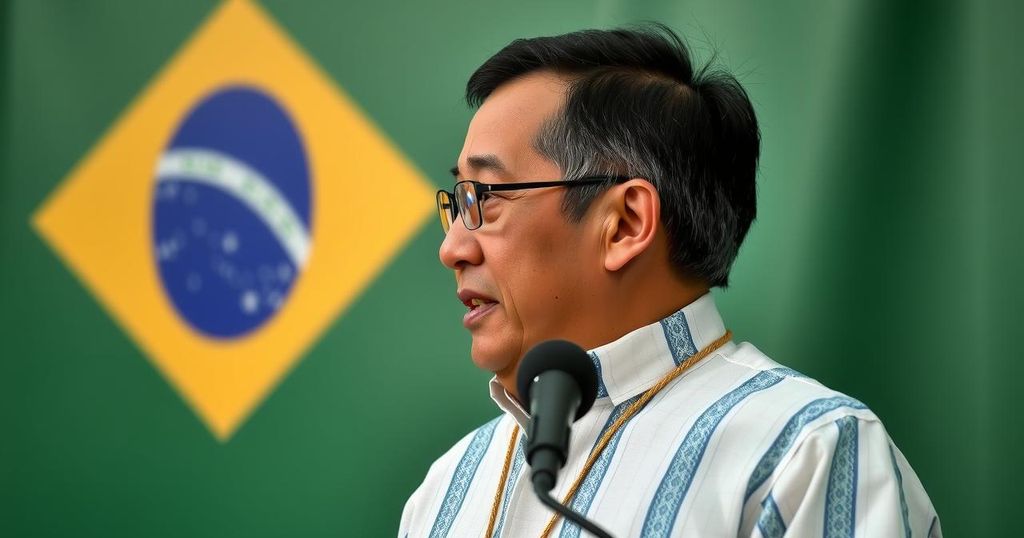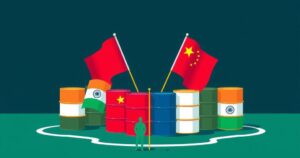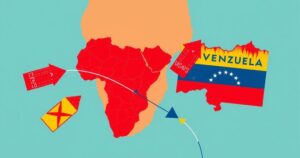Friction and Pragmatism: The Brazil-Argentina Relationship in Milei’s First Year

The relationship between Argentina and Brazil under President Javier Milei experiences friction but is marked by pragmatic diplomacy. Both nations work to sustain their crucial trade ties, with Brazil being Argentina’s largest trading partner. Initiatives in the energy sector and diplomatic cooperation highlight practical efforts. However, political tensions, particularly regarding asylum seekers from Brazil’s January 8 attacks, present ongoing challenges.
The tense interaction between Presidents Javier Milei of Argentina and Luiz Inácio Lula da Silva of Brazil during the G20 summit in Rio de Janeiro showcases the complexities of bilateral relations in Milei’s inaugural year. Despite indications of friction, practical diplomacy has continued to foster trade relations. Both nations are aware of the significance of maintaining economic ties, given that Brazil constitutes Argentina’s largest trading partner, accounting for 17% of its exports and 24% of its imports.
Trade imbalance has been an ongoing concern, with bilateral exchange declining since 2014. Lula’s administration aims to revitalize this aspect, yet Milei’s strict fiscal policies pose challenges to enhancing trade relations. Furthermore, the energy sector exemplifies pragmatic cooperation, illustrated by a swift diplomacy that averted a crisis when a Petrobras tanker diverted to assist Argentina’s gas needs in May.
An additional layer of cooperation emerged when Brazil managed Argentina’s diplomatic interests in Caracas following Milei’s administration’s expulsion by Nicolás Maduro. Milei’s attendance at an event with Brazil’s former President Jair Bolsonaro has raised eyebrows among his allies, especially given Argentina’s harboring of fugitives from Brazil’s January 8 attacks. The Argentine government has committed not to intervene, though final decisions lie with President Milei.
The relationship between Brazil and Argentina has historically been marked by both cooperation and contention. In recent years, trade relations have been strained, leading to a decline in bilateral exchange since 2014. The leadership dynamics under Presidents Milei and Lula reflect a complex interplay of political ideologies. While both leaders have expressed divergent views, the necessity of maintaining robust trade ties remains essential, particularly for Argentina’s economy, which is heavily reliant on Brazilian imports. Furthermore, geopolitical challenges, such as the diplomatic expulsion from Venezuela, necessitate pragmatic solutions that transcend political disagreements. Lula’s administration seeks to enhance trade, with Brazil being Argentina’s most significant trading partner, but Milei’s stringent economic policies complicate these efforts. The diplomacy surrounding energy needs further illustrates the dynamics of necessity amid political friction.
In summary, while tensions characterize the Brazil-Argentina relationship under President Milei, pragmatic approaches prevail as both governments navigate their economic interdependence. The focus on maintaining trade ties, managing strategic energy needs, and addressing diplomatic challenges illustrates a commitment to cooperation despite underlying political disagreements. As both countries strive to enhance their bilateral relationship, the coming months will be critical in determining the future trajectory of their partnership.
Original Source: www1.folha.uol.com.br






